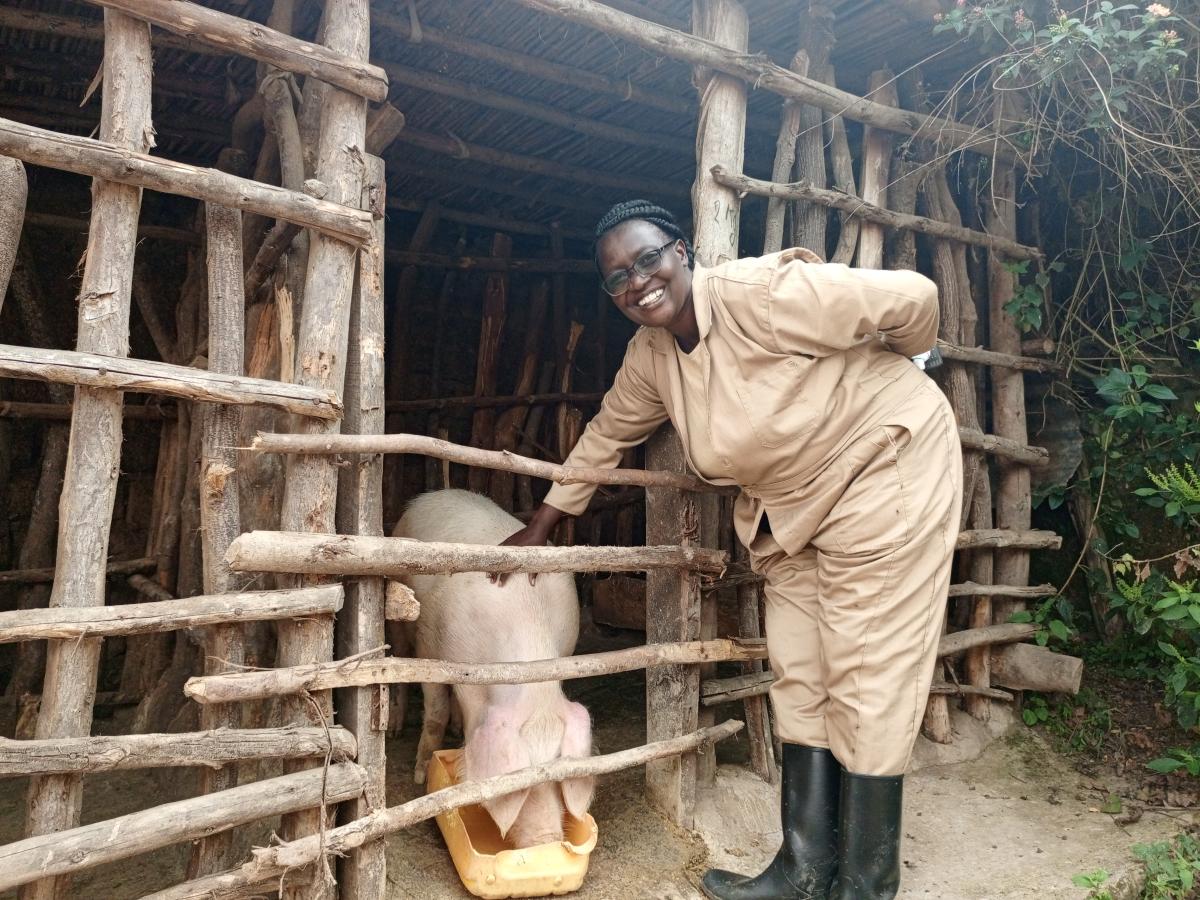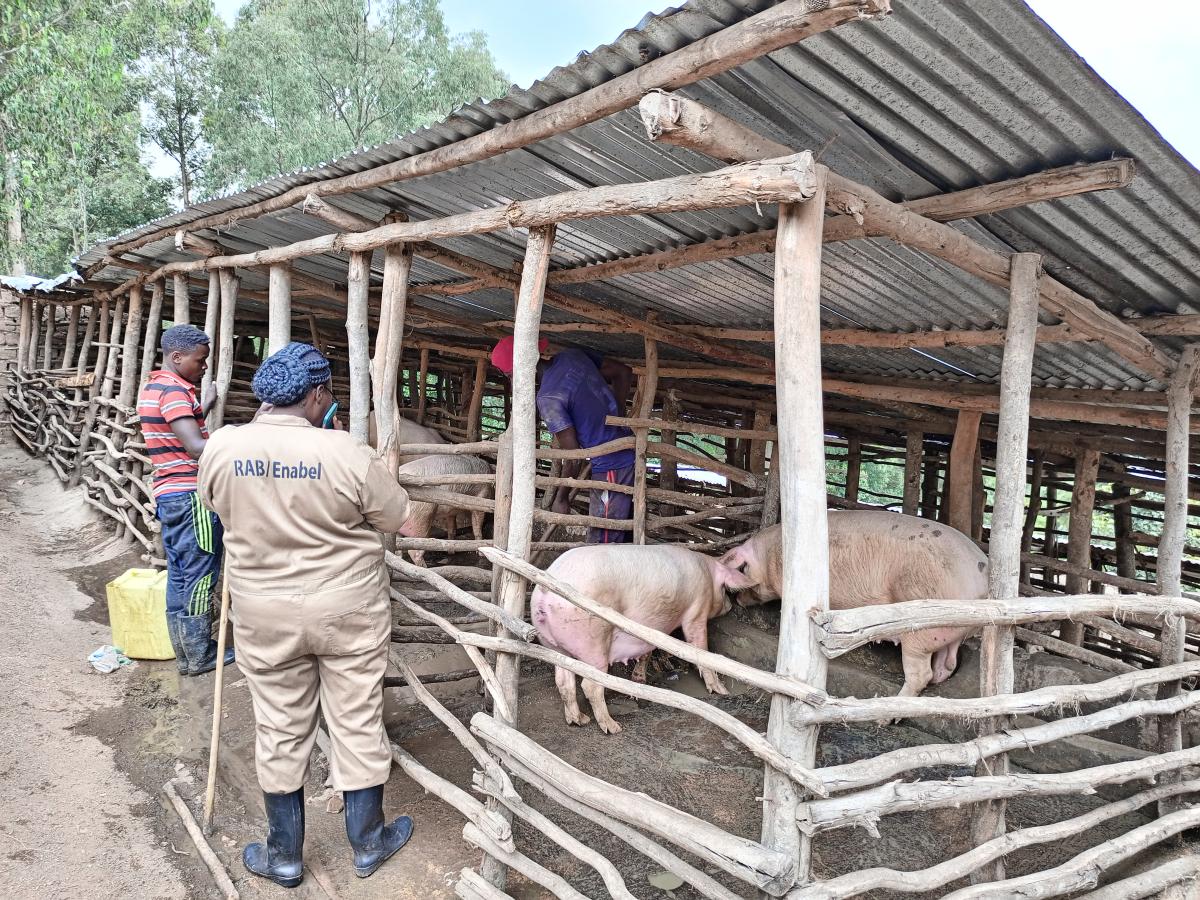Rwanda: Livestock Farmer Field School, path to business-oriented farming
PRISM-Enabel
livestock programme aims at empowering poultry and pig farmers to transition
from traditional
to commercial-oriented livestock farming by improving animal husbandry
practices and business management skills to increase productivity, profitability,
and job creation.
Through the Livestock Farmer
Field School (LFFS) approach, smallholder farmers were trained
on practical poultry and pig husbandry practices as well as farm
business skills. Such husbandry and entrepreneurial related competencies contributed
to catalyze
a market-driven poultry and pig farming systems.
In addition, gained knowledge increased their resilience to environmental and economic challenges.
From traditional to modern and
market-oriented pig breeder
Mrs Anastasie
Uwimabera is running a pig farm in Nyamabuye sector, Muhanga district. The LFFS enhanced her farming capacity and improved her entrepreneurship
and management skills to run her farm as an enterprise.
"I used
to feed my pigs with poor quality feeds like food leftovers from restaurants
and shed cleanliness was not satisfactory, this caused warms and other
bacterial infections leading to poor growth and sometimes deaths. The training
I got from Enabel gave me skills on how to feed animals on a balanced diet,
provide clean water and keep the animals in a clean shelter; all this brought a
big improvement as the pigs are healthier and grow faster leading to good
prices. Anastasie Uwimabera
Anastasie’s
pig farm started in 2019 with eight female pigs and one male of low-quality
indigenous breed. Due to poor management practices, the returns were often low. The situation changed for the better when she
acquired new skills through Livestock Farmer Field School in 2021,
provided by Rwanda Agriculture Board (RAB) and PRISM-Enabel, on how to choose
the best animals for breeding, feeding, health practices and
business management, which helped to increase her benefits.
“I
supply both piglets and mature animals respectively for rearing and slaughter.
I sell my hybrid piglets at FRW 30,000 each. The price for slaughter animals
depends on the weight. A kilo of pork is between FRW 1,800-2,500. Recently, I
sold a pig that weighed more than 120kgs for FRW250, 000 thanks to the improved
husbandry practices received from the project. Since the last three months, I
have sold about 2 tons of pork and I have earned a gross income of Rwf
4,000,000, which is much higher than before I got the training, I was selling
less than 500kg” she
said.
Equipped
with the modern skills, Anastasie plans to expand her business to supply the
growing market for animals for both breeding and slaughter. She aims at increasing
her farm from 150 to 1,000 pigs in the
next two years.
Job
creation
Pig
farming is an entry point for job creation for youth. Anastasie Uwimabera currently
employs ten occasional labors and two permanent employees who ensure the
reparation and maintenance of farm, off-loading of feeds, loading of animals to
market, cleaning of farm and washing of animals.
In partnership with RAB,
PRISM-Enabel trained 300 lead farmers, including 205 in poultry
and 95 in pig farming, in Improved Livestock and Business Management. The same
group also got training sessions through Farmer Business Schools (FBS) to help
them improve entrepreneurship and management skills.
In turn, these lead farmers
formed and trained
600 farmer groups (410 in poultry and 190 pig farming) of 25-30 producers
each, totaling around 18,000
pig and poultry
farmers across the ten districts of project intervention, namely Rwamagana
and Bugesera in Eastern Province, Muhanga, Gisagara and Nyamagabe in Southern
Province, Gicumbi, Rulindo and Musanze in Northern province, Rubavu and
Rusizi in Western province.
Dernières actualité de ce projet
Pas d'actualité


